Peckish All Weather Suet and Peanut Feeder
Designed from Perforated stainless steel, the Peckish All Weather Suet and Peanut Feeder is durable enough to allow many birds to feed at once. Ideal for suet pellets or peanuts, the Peckish All Weather Suet and Peanut Feeder will attract many birds to your garden. It has a quick release base for easy cleaning and a large handle so it can be hung on a tree or on one of our bird feeding stations with ease. You can feed all your bird visitors tasty peanuts easily using the Peckish All Weather Suet and Peanut Feeder.

Where to set up your Peckish All Weather Suet and Peanut Feeder:
How to Care for the Birds in Autumn
As summer turns into autumn there’s a notable change in the light, mood and atmosphere of the garden. Birds feel the change, which triggers them into their migration mode. Many birds fly from the UK to warmer climates (some as far as South Africa). Or could even be arriving here from colder countries for the winter. Every season brings a challenge for birds, so if you enjoy their presence in the garden, it’s important to care for them during the autumn months.
What to Feed

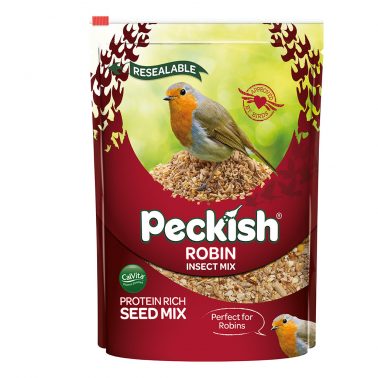
How to Feed
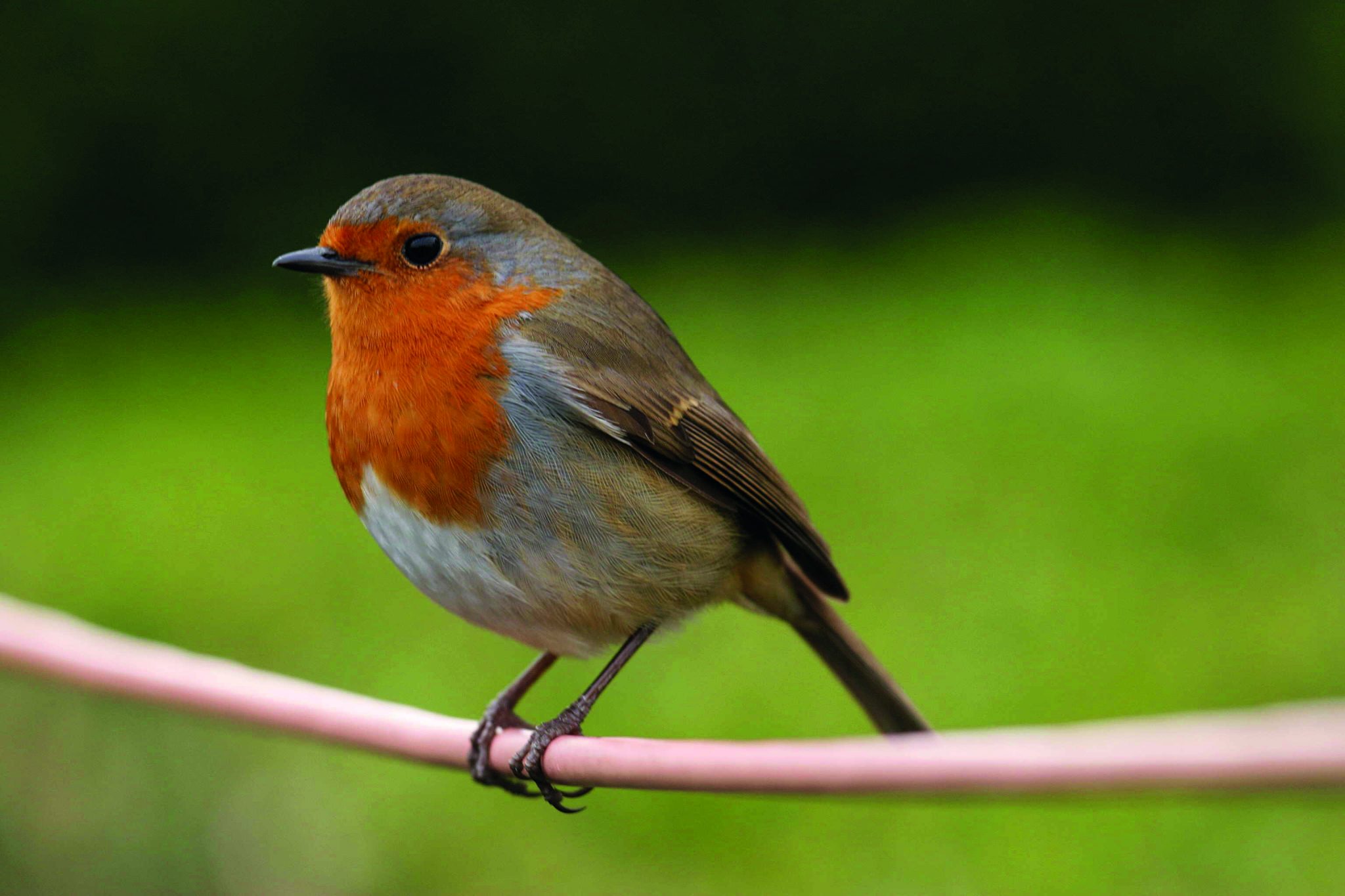
Natural Food
The autumn garden can provide a natural larder of berries, fruit and insects that form the natural diet of many birds. With a big range of berry-bearing plants in the garden, you’ll be treated to branches laden with ripening fruit. You will also find lots of birds attracted to this rich food source.
Autumn is a great time to get a variety of plants in the ground to care for the birds. There’s a big range of trees and shrubs that provide birds with vital food as well as shelter throughout the colder months. Plant crab apples, rowans, cotoneasters, pyracantha and and other fruiting plants for garden birds. Add mixed hedging plants as garden boundaries instead of man-made fencing. It’s also important to provide a constant supply of fresh food and water.
Choose food that imitates their natural diet for the very best results.
Food such as Peckish Natural Balance Seed Mix is enriched with Black Sunflower Seeds is perfect for providing additional fats.
Peckish Complete Seed & Nut Mix as above is also perfect for all year round feeding.
Bird Drop
However, have you noticed a lack of bird activity in your garden at the moment? Many birds leave for warmer shores as the colder weather sets in, this noticeably reduce their overall numbers. As well as this, birds are in their final throes of moulting. While losing their feathers makes birds less active, growing them back is also a slow, energy-demanding procedure too. Moulting can leave your garden birds feeling a little under par. Providing them with a little TLC in the form of energy-rich food will give them a welcome boost and a helping hand, providing them with the essential nutrients that they need.
If you are passionate about birds then choose to feed them a specially formulated mix.
These are designed to provide a rich and varied diet but to also attract a range of bird species to keep coming back for more.
As recommended above why not try Peckish Robin Insect Seed Mix that is high in protein, thanks to the mealworms.
Our Peckish Wild Bird Food range is designed to supplement the natural food available in your garden so they don’t go without.
Birds spend 98% of daylight hours foraging for food and can suffer protein deficiencies if food becomes unavailable to them for any reason.
The warm summer this year has dried out much of the garden fruit for instance.
Supplementary bird food is essential for the survival of your garden birds.
Comings and Goings
Autumn is a busy time for many birds as they move to their winter homes. Birds migrate in their millions every autumn from cooler northern climes to more southerly wintering grounds. It’s a slow process, usually dictated by the weather, which starts as early as July and August for some species. It also continues through to October and November for others. It’s two-way traffic too. While some of our garden birds move south, others arrive in their place, seeking the relative mild sanctuary of the British Isles for their winter stay.
Summer visitors such as cuckoos, warblers, swifts, house martins, and swallows will gradually leave Britain flying south making considerable journeys to as far away as Africa.
Nature abhors a vacuum so fills this gap with winter visitors. Swans and geese, redwings, waxwings, bramblings and fieldfares all arrive on our shores to escape the colder weather elsewhere.
Topsy-turvy weather can bring some surprising species on a freak wind, creating great excitement for birdwatchers. Some species will stay and others are just passing through using our gardens and wider landscape to sustain them on their journeys. Keep them well-fed with a range of quality food offered in feeders and on bird tables to ensure good accessibility for all their needs.
Roost Sites
Birds often roost in trees and hedges to give them protection from predators. They also use empty nest boxes and roosting pouches to insulate themselves from the cold and provide shelter from the rain. Make sure your garden has plenty of dense hedges, shrubs and trees where your feathered friends can stop over for the night well protected. Walls, trellis and even trees clothed in ivy and climbers give good leafy cover for some species like little owls, while other birds prefer to roost en masse in boxes to preserve their body warmth.
Some birds will share their body heat and shelter overnight in small flocks inside a roosting box. Wrens are known to pile in on top of each other to endure cold winter nights; 62 individual birds were counted as a record number in one site. Treecreepers have a similar roosting pattern, jamming themselves together in cracks and crevices in the trees to preserve their warmth. While nest boxes can and do provide shelter for many solitary birds, a dedicated roost box is better designed for the purpose. It is usually fitted with special perches and internal walls featuring places for birds to cling and hang in comfort.
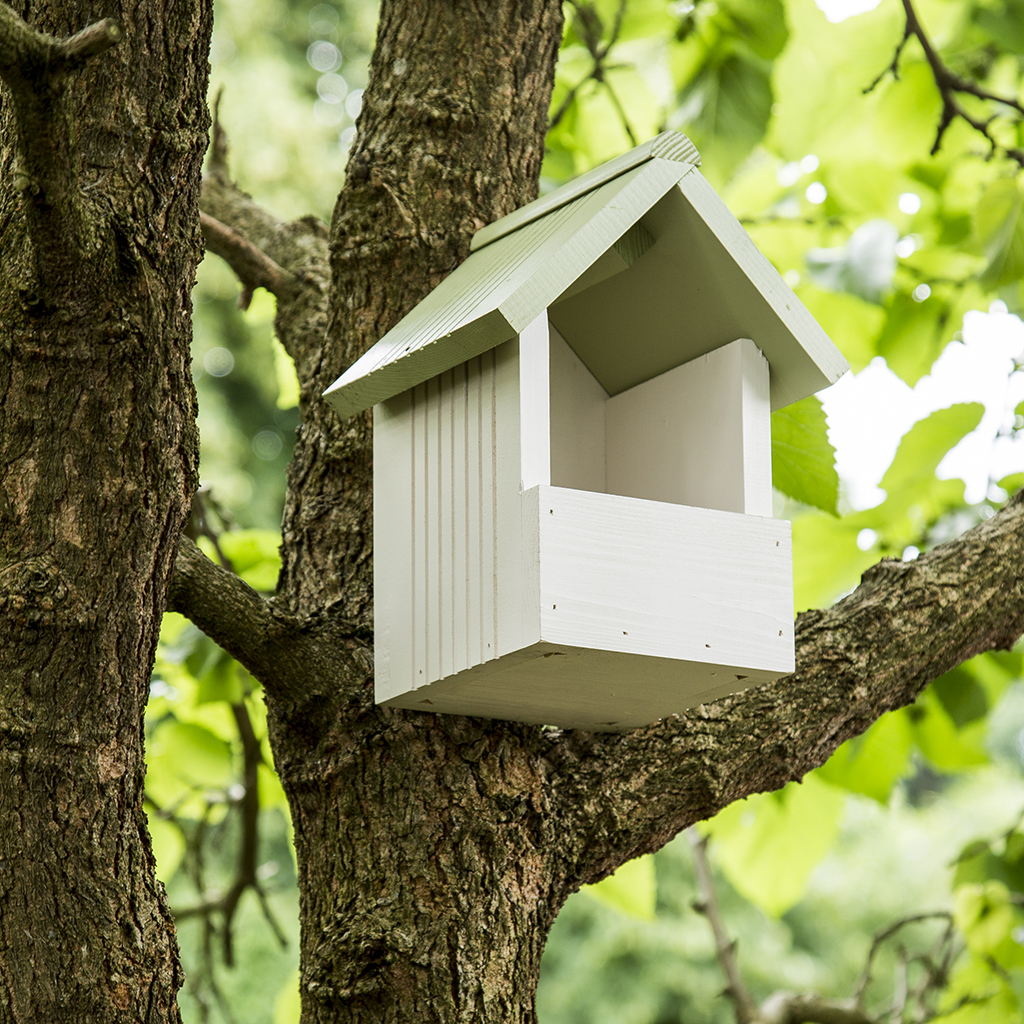
Bird Boxes
With the nesting season over, autumn is the perfect time to clean out your bird boxes with an effective disinfectant, repair any damage and get them ready for next year’s bird families. Even boxes that haven’t supported a brood need a check over to ensure they are in good condition. Open them up, clear out any debris carefully and use a special cleaner/disinfectant for wildlife to clean into the cracks and crevices.
Get the box ready for early spring nests now. This allows time for a range of garden birds to inspect their prospective home and can use it for roosting in the winter. Mend any damage, seal up cracks and oil the hinges if they’re squeaking. Line the box with fresh, dry moss or dried, autumn leaves and put the boxes back up ready for spring. If you need new nest boxes, view our range here.
We recommend you face the entrance away from the prevailing wind and fit metal guards to the entrance holes to prevent predators from gnawing the wood to gain access. Angle the box slightly so that any rainwater falls away, rather than into the nesting area which can lead to damp and disease.
Water Source
After this hot summer maintain the habit of giving garden birds a fresh, clean source of drinking and bathing water. Even as the weather cools, birds need to drink and bathe to stay hydrated and maintain their feathers. A purpose-made birdbath is a good choice. Just replenish the water daily especially in freezing weather, or add a water drinker that hangs at the feeding station.
Keep your birdbath and drinkers hygienically clean using a dedicated wildlife disinfectant to prevent bacteria and disease spreading. Position your water source in a safe, open spot. This way predators can’t prey on the birds while birds’ attention is diverted.
Provide several venues for water sources at different levels to cater for a wide variety of bird species and their habits. A good quality bird bath is essential, like the Peckish Secret Garden Bird Bath. We recommend you place them in view from a window to enjoy the spectacle. It offers hours of entertainment, lifts the spirits and doesn’t involve a watt of electricity.

How to Care for Birds in Winter
Many creatures fatten themselves up during the summer months so that they can survive over the winter on the fat they store. Birds live for the moment, feeding on whatever is available to maintain their body weight and survive each day to face the next. It’s a tough life and, unfortunately, many don’t make it through the winter. So why not read on and find out how you can help to care for birds this coming winter.
How to care for birds this winter
Help birds survive by supplementing their diet, providing safe shelter and clean drinking water. As the temperature drops and natural food becomes less available, this extra feeding support can often be the difference between life and death.
Fast Food
Solid, frozen ground iced water sources and a frozen landscape can make most natural food unavailable to your feathered friends.
Every activity they make uses vital energy they need to keep warm, so keep your feeders and bird tables well stocked with food so they don’t have a wasted journey. Choose food that is husk and hull free for faster feeding to reduce the effort needed; it’ll also keep the area underneath your feeders free from mess and debris.
In the winter we need to feed according to demand, especially when you start feeding and in wet and cold weather. Offer food for a short period to start with to prevent wastage; once the birds have found your feeder, you can adjust the amount you feed accordingly.
Body Weight
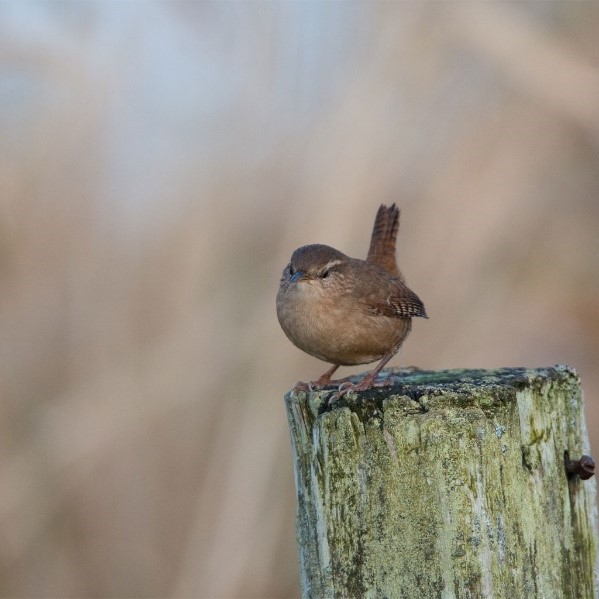
Birds need to be lightweight to fly, but the cold winter temperatures take their toll on tiny birds that need to keep their body weight up to survive. Small birds such as goldcrests, wrens and long-tailed tits all lose their body heat much more quickly than their larger cousins and need to feed regularly to keep warm.
With the days becoming shorter, all birds have much less time to find food and for small species, this can mean foraging and eating continuously from dawn until dusk.
In cold and icy weather, their normal food can be hard to find, so if you want to make a real difference, feed the very best quality food you can buy when it’s cold. High-energy food really can help make a difference, like our Peckish Winter Warmer Seed Mix.
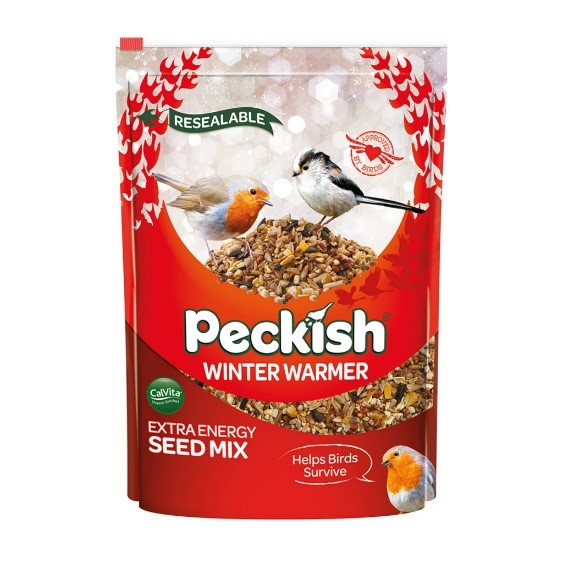
Choose energy-rich bird food that contains suet, nuts, and oil-rich seed such as sunflower hearts. Peckish Extra Goodness Nuggets are a great choice as they can be presented in feeders, on bird tables or ground feeders, so that every type of bird can benefit. Each nugget contains a nutritious combination of high-energy suet, seeds, and high protein mealworms, mimicking a natural diet and providing birds with the energy and nutrients they need to stay healthy. Feed daily and increase the quantity during cold and icy weather.
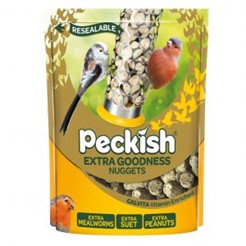
You can also offer more than one type of food to cater for a wider spectrum of birds or opt for a species-specific product that contains a balanced mix of seeds, nuts, insects, fruit, fat and berries.
Songbirds
It’s hard to imagine the garden without the sound of bird song; it’s a worrying thought and your garden would be a very different space.
Many of our garden birds including chaffinch, wren, tits, and thrushes are known as songbirds, each filling the air with a musical dawn chorus and then continuing their beautiful performance until dusk. Just like a fine orchestra, these music makers need the energy to sustain them. Keep them in fine fettle and good voice with a feed that suits their needs.
Offer food on bird tables and ground feeders to provide a nutrient-rich feed for your musical feathered friends.
Nestboxes

Nest boxes make great gifts for gardeners, and winter is the perfect time to put them up and allow them to blend into their surroundings.
Wild birds often choose boxes that have been in place a season or two, familiarising themselves with the environment and site for weeks or months before they move in. They need to ensure that it provides a safe place to raise a brood.
In winter, nest boxes are also used for roosting by some small species. Transform your nest box into a safe roosting box with a few simple tricks:
Robins

The quintessential winter bird of Britain simply must be the robin. They feature on Christmas cards and their bright red chest even resembles the garb of the great Santa himself!
Robins are revered by gardeners as voracious pest eaters and often shadow the winter gardener in the hope of an unearthed worm or another tasty morsel.
Robins are very territorial and have an extremely beautiful song, but these characterful birds, like many other small garden birds, find winter quite a test; 70% of robins will die before they reach a year old. Their first winter is the hardest of all, but you can do your bit and help these creatures survive to raise their chicks.
You can make a real difference by supplementing their diet with some insect rich food that mimics what they choose to eat in the wild. Choose a tailored robin food and you’ll soon see much more of the red-chested puffed-up robins hopping between the shrubs in your garden.
Robins are ground feeders but will also feast at a table. They can become quite tame and many people have trained them to take mealworms from an outstretched hand. It’s a slow process of gaining their trust that begins by offering them dried mealworms from the bird table. These high-protein wild bird treats are almost irresistible, and you could soon have them eating out of your hands.
Here at Kennedys Home And Garden we have joined forces with DPD to ensure all packages are delivered promptly and safely to you. We ship to all mainland countries within the EU. Deliveries take place Monday to Friday excluding bank holidays. Once your order has been dispatched from our warehouse you will be notified by email. If there is a delay with your order for any reason you will be contacted immediately.
Due to Brexit we are temporarily unable to ship to the UK. Deliveries to Northern Ireland will continue as ususal
| Ireland (ROI & NI) | EU (Mainland Only) |
| 1-3 Working Days | 4-6 Working Days |
Some product have an extended delivery time, this is noted on the products.
| Country | Orders Under €99 | Orders Over €99 |
| Ireland (ROI & NI) | €7.99 | €0.00 |
| Austria | €24.99 | €13.00 |
| Belgium | €21.99 | €10.00 |
| Czech Republic | €24.99 | €13.00 |
| Denmark | €24.99 | €13.00 |
| Finland | €36.99 | €25.00 |
| France | €21.99 | €10.00 |
| Germany | €21.99 | €10.00 |
| Hungary | €28.99 | €17.00 |
| Italy | €34.99 | €23.00 |
| Luxenburg | €21.99 | €10.00 |
| Netherlands | €21.99 | €10.00 |
| Poland | €21.99 | €13.00 |
| Portugal | €36.99 | €29.00 |
| Slovakia | €28.99 | €17.00 |
| Slovenia | €28.99 | €17.00 |
| Spain | €34.99 | €23.00 |
| Sweden | €34.99 | €23.00 |
A selection of the products we sell are only licensed for sale within the Republic Of Ireland and can not be shipped outside of the country. These products are noted as only being available within the Republic of Ireland on the individual product pages.
There may be an addition charge on certain bulky items. This charge will be clearly marked on an applicable products and will be explained on the checkout page before payment has been made.
We’re sorry your purchase didn’t work out. But don’t worry; we have a great returns policy to help you out.
All purchases can be returned to us within 14 days of delivery and returned goods must be received within 14 days from the date you informed us of the return.
Purchases may be opened for inspection but must not be used and must be repackaged securely in the original packaging if you wish to return it.
If we discover goods have been used or there has been a loss in value of the goods due to damage to the goods, while in your care or whilst being returned to us, we will reduce the amount refunded, which may amount to the full cost of the product, to cover loss of value of goods.
We accept no responsibility for goods damaged or lost while in transit to us.
The cost of the return, including all packaging and freight, lies solely with the consumer.
First off, if you have received a damaged electrical product from us, do not plug it in. Any electrical products that are plugged in are deemed ‘as used and accepted’ and are not accepted as returns. All damages must be reported to us via phone or email within 24hours of receipt of goods. Please ensure you check your items upon delivery.
How do I begin the returns process?
If you wish to begin the return process, please email us at ballyconnell@experthardware.ie and ensure the following information is included in your email. Your name, phone number, Order id, the item you wish to return, reason for return and if the product is damaged we require photos of the product.
Once you have sent us all required information a member of our team will assess your claim and will contact you as soon as possible. Please hold off on returning products until a member of our team has called you to confirm.
All returns must be the complete product which includes boxes, manuals and accessories that may have been include with the order.
All returns must be packaged appropriately for shipping, we will not accept responsibility for damages or loss which occur during shipping of a return product.
Address: Please ship the product to the following address: Kennedys Home & Garden, Drumrahan Retail, Church Street, Ballyconnell, Co Cavan
Once the returned product has been returned to us and fully inspected a refund will be issued.
Please Note: A typical timeline for a refund to show in your account is up to 10 working days from the date processed, depending on your bank.
Would you like to send this voucher to the recipient via email?
Yes No